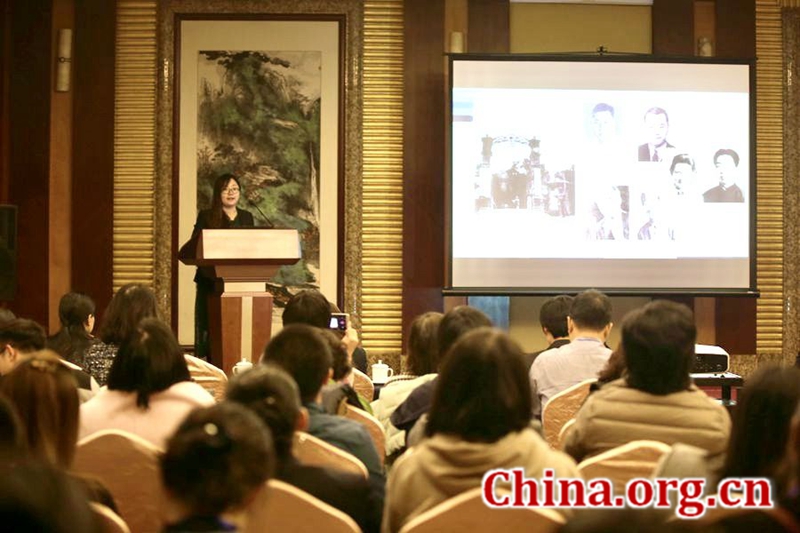Forum discusses translation of Xi Jinping Thought on Socialism with Chinese Characteristics for a New Era
- By Li Huiru and Zhu Bochen
 0 Comment(s)
0 Comment(s) Print
Print E-mail China.org.cn, November 9, 2019
E-mail China.org.cn, November 9, 2019

Themed "Translating Xi Jinping Thought for an International Audience," a forum was held on Saturday during the Translators Association of China (TAC) Conference 2019 in Beijing.
The forum was organized by the TAC Foreign Discourse System Research Committee and the Discourse Innovation Research Center of the Academy of Contemporary China and World Studies.
At the forum, Zhang Ying, dean of the School of Interpreting and Translation of Beijing International Studies University, proposed five principles in what she calls "China's new concept translation".
These principles are based on her research and reflections on the translation methods of Xi Jinping Thought on Socialism with Chinese Characteristics for a New Era and other important documents including Xi's report at the 19th National Congress of the Communist Party of China.
Zhang emphasized that the translation of political literature in the new era should go beyond traditional thinking. She said that new ideas and innovation should be promoted, and the roles of translators and interpreters should be highlighted to bridge the differences in the values, languages and cultures between China and the West.
According to Liu Kuijuan, deputy director of the English Department of Foreign Languages Press, a senior translator certified by China Accreditation Test for Translators and Interpreters (CATTI), the translation and publication of state leaders' works is an important way to enhance the influence of Chinese discourse in the international arena.
Taking the English version of Xi Jinping: The Governance of China Volume I and Volume II as an example, Liu briefly introduced the general process and principles in the translation of the work, shared some reflections with experts and scholars, and discussed translation difficulties and solutions.
In view of China's global communication, Liu believed that it is of utmost importance to balance tradition and innovation. She also noted that translators, editors and other personnel should work together to build China's international discourse system.
In regards to strategies intended to improve the Japanese translation of terms with Chinese characteristics, Liu Jian, associate professor of Japanese language at the College of Foreign Languages of Capital Normal University, analyzed existing translation works. She called for a more systematic and comprehensive academic study of Chinese-Japanese translation.
Zhang Haiyan, an associate professor of the School of Languages and Communication Studies of Beijing Jiaotong University, introduced her Finereader-based parallel corpus. In that she compared and contrasted the English translations of 52 core words and phrases covering politics, the economy, Party building and the people's well-being in the English version of the second volume of Xi Jinping: The Governance of China with their corresponding official English translations in the past on the levels of linguistic structure, parts of speech, semantic degree and phraseology. Zhang also tried to expound on the translation features of the core vocabularies of this work from the perspective of dynamic cultural translation theory.






Go to Forum >>0 Comment(s)